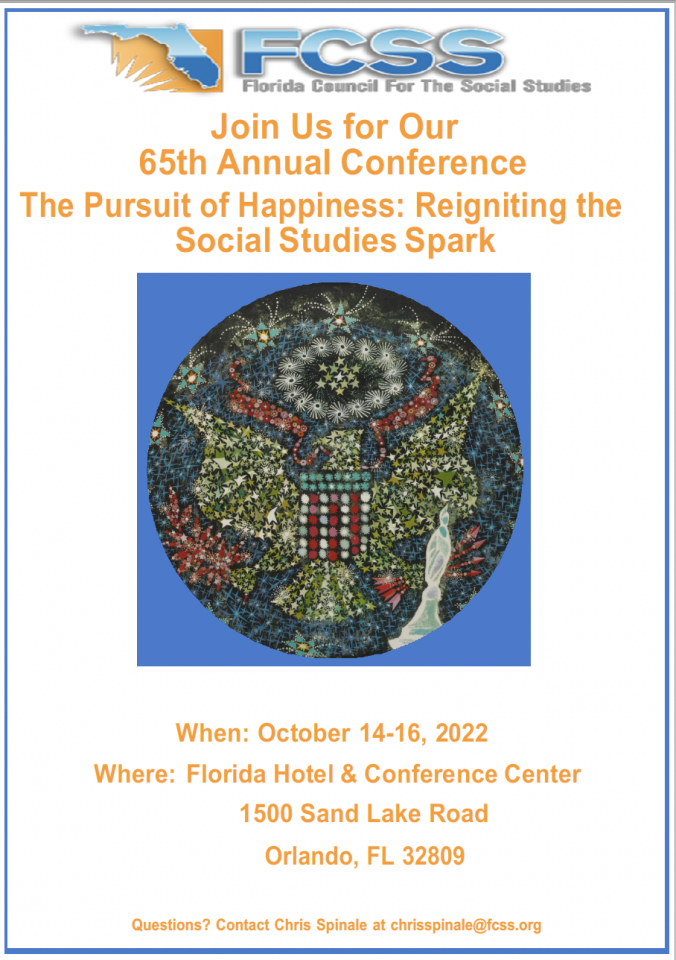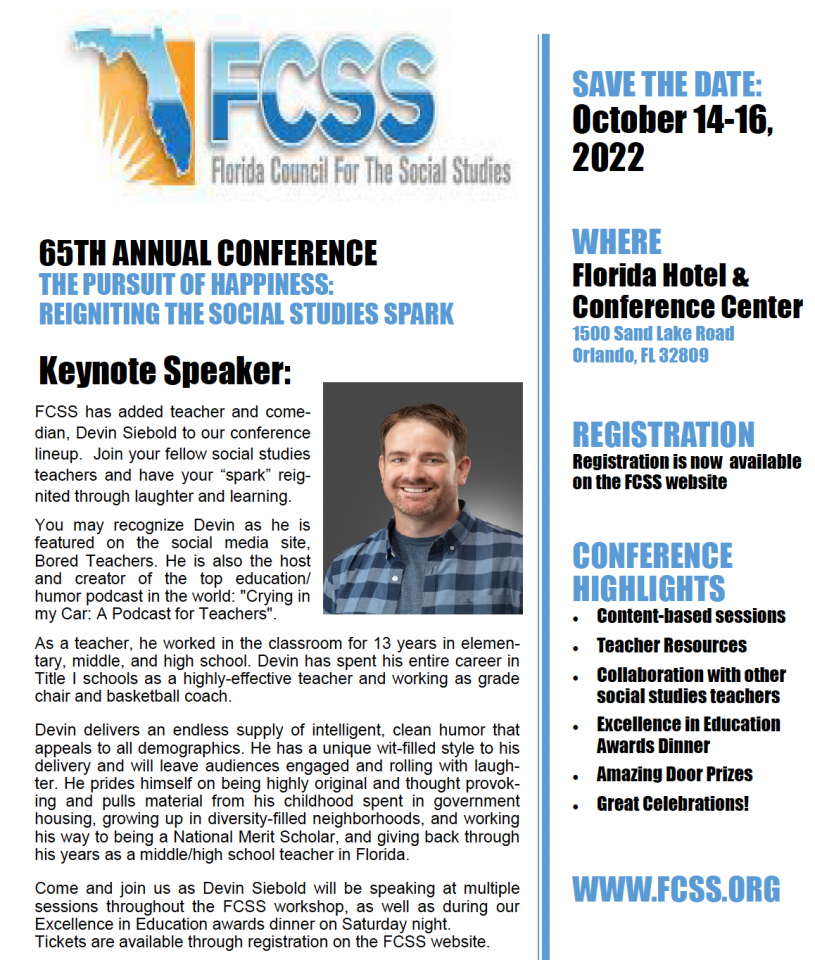Well, another election approaches next week! And we have some Civics in Real Life resources to share!
This includes our newest CRL on the upcoming mid term elections.

But don’t forget that we have so many more!
Inflation & Presidential Approval

Well, another election approaches next week! And we have some Civics in Real Life resources to share!
This includes our newest CRL on the upcoming mid term elections.

But don’t forget that we have so many more!
Inflation & Presidential Approval
Did you miss our webinar in collaboration with the Carter and Clinto Libraries last month? It is now available online! You can view it here, and click below to access Carter Library resources aligned with the webinar.
Hey friends! We want to share with you this excellent opportunity for a couple of high school government teachers here in Florida. It culiminates with an engagement with a member of Congress for your students!
This collaboration with the fine folks at UC Riverside includes a $1000.00 stipend, free PD, and a certificate for that PD that you can use towards renewal.
This is a really cool opportunity for teachers and their students. The timeline is tight but doable.
You can download the flier below. Questions or want more info? Shoot us an email!
Good morning, friends! Today we bring you a resource for September that you might find useful. This PDF, with embedded links, shares important holidays and observances that take place throughout the month of September. It includes links to lots of resources that you might find useful! You can download it below.
If you missed the webinar we did on August 24 concerning the resources we here at the Florida Joint Center for Citizenship at the Lou Frey Institute have available to start the year strong, it’s now posted online so click here!

This video and the resources mentioned in the webinar can found here.
If you have questions or would like to discuss professional development, reach out any time!

Good afternoon friends! Just a reminder that our Guardians of Democracy courses are now enrolling cohorts! We have space for participants in Bronze (beginner), Silver, and Gold courses. I would especially recommend the Current and Controversial Issue Discussion Strategies course for those folks wanting to know how they might abrouch classroom discussions in the current environment.

You can register for the Bronze level courses here.

Ready for Silver or Gold? Register here!
Questions? Feel free to contact Chris Spinale of the Lou Frey Institute or Mary Ellen Daneels of Illinois Civics Hub!
Hey friends! Are you new to teaching civics and government in Florida? On August 24th at 4:30 we will holding a webinar to discuss resources and things to remember when working to create that next generation of Florida citizens. It is, as always, free! You can register for the webinar here, and download and share the flyer posted below!
Hey friends. As you are likely aware, Florida has established a Civic Literacy Examination for high school seniors and college students. High school kids only have to take it, while it is an actual graduation requirement for Florida college and university students. To support this, we have collaborated with FDOE to support the development of both a practice test
and a supplemental guide.
At the request of many teachers, we have also developed a supplemental resource PowerPoint (free registration required on our Florida Citizen website) that addresses many of the US Supreme Court cases that could appear on the FCLE. This is intended as a supplemental resource; you are encouraged to ensure that your instruction covers the required material, though this may make it easier.
We are always happy to provide professional development and resource support for civics and government as you need it. Feel free to contact us at anytime!

Well, our theme is The Pursuit of Happiness: Reigniting the Social Studies Spark. And we know it’s going to be fantastic. Check out the keynote speaker!

So get those proposals in, and help us, and your colleagues, reignite that spark!
Proposals are due no later than June 8, 2022. If you have any questions, please contact Terry Davila-Alexander and Lauren Samoszenko at conferenceproposals@fcss.org. You can submit your proposals at this link.
The Florida College and University Faculty Assembly (FL-CUFA) invites proposals for scholarship to be presented at its Annual Meeting, which will be held during the Florida Council for the Social Studies Annual Conference. FL-CUFA’s program will include papers, symposiums, contemporary issues dialogue, and research-into-practice sessions focused on empirical research or conceptual analyses of social studies education.
Deadline: Sunday, July 31, 2022 @ 11:59 p.m.
Presentation Formats
Paper Presentations (20 minutes)
An individual paper presentation gives authors an opportunity to present abbreviated versions of their empirical or theoretical/conceptual scholarship. After the papers are presented, time will be provided for audience interaction, focusing on commentary on key revelations, vexations, and themes raised by the papers. For the sake of effective presentation and discussion, individual papers should be limited to 3,000 words, excluding references. The typical structure for a session with two papers includes a brief introduction by the chairperson or the presenters themselves, 20 minutes for each author’s presentation, and 10 minutes of audience participation.
Symposium Sessions (50 minutes)
A symposium offers presenters and audience members the opportunity to explore a particular problem or theme from various perspectives. Organizers of symposium sessions typically establish the topic, identify and solicit participation from appropriate scholars, and assemble and submit a single proposal representing the collective work of participants. Symposium proposals should include no more than four participants. The organizer must obtain permission and input from each individual represented in a symposium proposal. Symposium papers should be limited to 3,000 words. The lead presenter will determine how time is to be allocated to each presenter for symposium sessions.
Contemporary Issues Dialogue (50 minutes)
The contemporary issues dialogue format offers conference attendees an opportunity to explore contemporary issues or dilemmas in social education via a unique forum not represented by paper sessions and symposiums. Contemporary issues dialogues can include informal discussions, town hall meetings, roundtables, papers-in-progress, structured poster sessions, research planning and methodological activities, video presentations and performances, and book talks. Sessions that promote active participation and open dialogue among audience members are strongly encouraged. Proposal authors will determine how time is to be allocated during contemporary issues dialogues.
Research-Into-Practice Sessions (50 minutes)
Research-into-practice sessions offer FL-CUFA members the opportunity to discuss and demonstrate the implications of research for educational practice. Given their association with the regular FCSS Conference program, audience members typically are classroom teachers, teacher educators, supervisors, and school administrators. With that audience in mind, presentations should feature scholarly, yet accessible, discussions and activities of interest to practicing educators. Proposal authors will determine how time is to be allocated during research into practice sessions.
Submission Guidelines
Presenters must provide, in an email to the Program Chair, Scott Waring (swaring@ucf.edu), the following:
Because proposals will be reviewed in a blind peer review process, please do not include the names or affiliations of authors and presenters in the proposal document and ensure that no identifying information is embedded in the proposal document as metadata.
The Program Chair reserves the right to reject without review any proposal that exceeds the 3,000-word limit. The Program Chair reserves the right to disqualify submissions in which authors’ identifying information is revealed.
The submission deadline is Sunday, July 31, 2022 @ 11:59 p.m.
Individual Paper and Symposium Proposal Contents
Each proposal should include the following elements: a) the title; b) an abstract of 35 words or less; c) the purposes and/or objectives of the study; d) the theoretical framework or perspective; e) research design and/or methods of inquiry; f) findings or arguments and their warrants; g) the importance of the work’s contribution to scholarship; and h) references. To preserve the integrity of the blind peer review process, please do not include the names or affiliations of authors and presenters in the proposal document. The Program Chair reserves the right to disqualify submissions in which authors’ identifying information is revealed. The review criteria will incorporate the clarity, organization, and perceived scholarly significance of elements c) through g) above.
Contemporary Issues Dialogue and Research Into Practice (RIP) Proposal Contents
Contemporary Issues Dialogue and RIP session proposals should include the following elements, as appropriate: a) the title of ten words or less; b) an abstract of 35 words or less; c) the purposes and objectives of the session; d) theory and research in which the session is grounded; e) methods of presentation or modes of activity for the session; f) findings or arguments and their warrants; and g) references.
To preserve the integrity of the blind peer review process, please do not include the names or affiliations of authors and presenters in the proposal document. The Program Chair reserves the right to disqualify submissions in which authors’ identifying information is revealed. The review criteria will incorporate the clarity, organization, and perceived significance of elements c) through f) above.
Participation Requirements
It is expected that all authors or presenters represented in a proposal will register for the FCSS Annual Meeting and attend and participate in conference sessions. If an emergency or other unforeseen circumstance precludes a participant from attending, she or he should immediately contact the Program Chair, Scott Waring, at swaring@ucf.edu. To promote diversity among perspectives and participants, no presenter shall appear as author or co-author on more than two proposals.